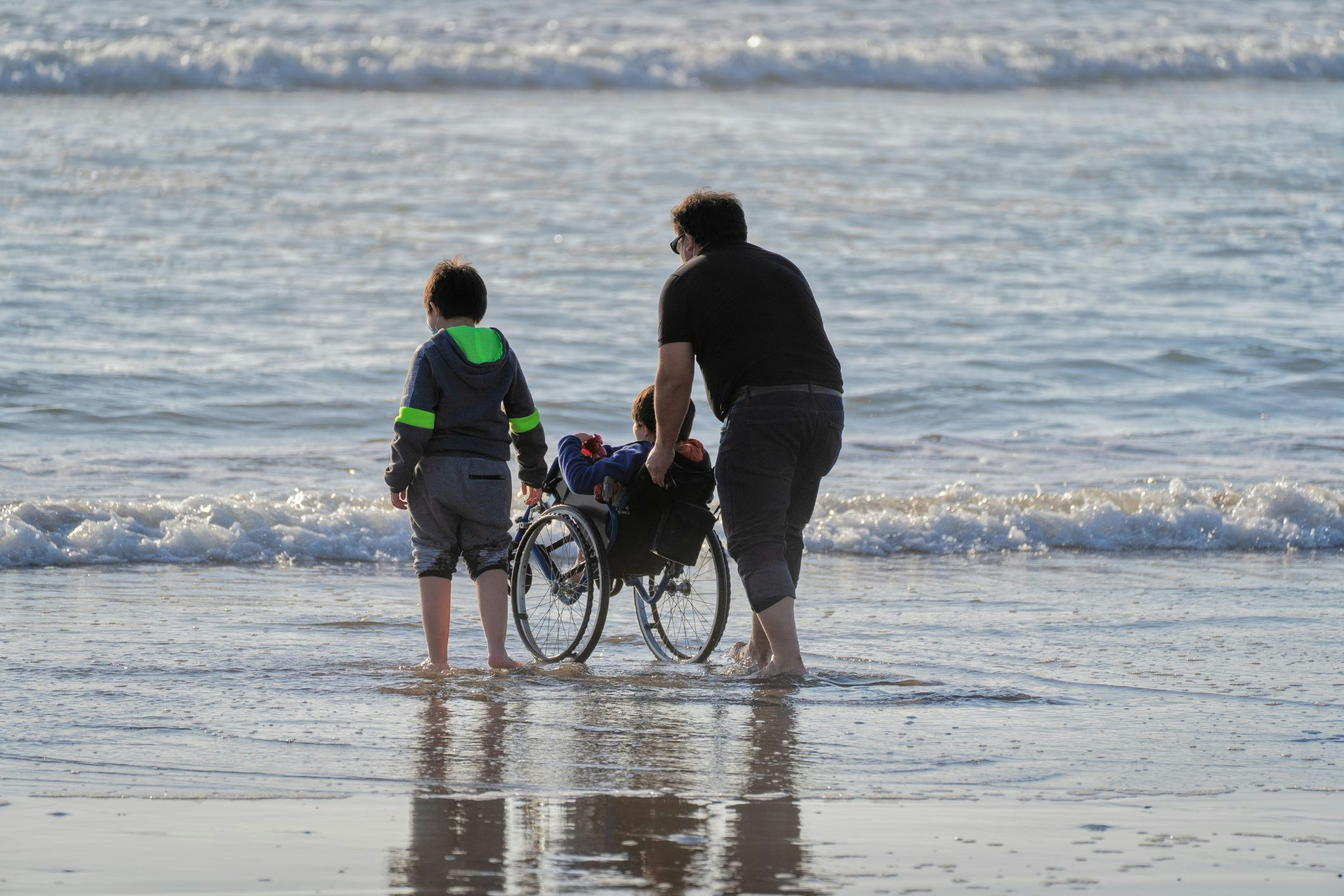Growing up with a sibling living with disability

This edition of the Disability Support Guide covers the things for parents to keep in mind to foster a strong connection between their children, particularly as they enter school together or have to take on the role of a parent as they grow.
Key points:
- Depending on the age gap between a child and a sibling with disability, kids may have a harder time looking out for their family in everyday life
- Older siblings will find that they often have to play the role of a parent more to their sibling with disability, keeping accessibility and care in mind
- There’s a wide range of great media for families to bond over positive representation and inclusivity, particularly aimed at kids
How to introduce the topic of disability to your family
For parents of twins or kids growing up at roughly the same age, there will come a point in time where you have to explain differences in how family members look, the devices they use, the care they need and how they can work together to forge an incredible bond.
Being able to recognise that we’re all a bit different is something that kids pay close attention to. While observation skills are great for people entering into the world for the first time, learning how to understand and deal with these differences is the next step towards supporting the person you care for who lives with disability.
Simple explanations of complex conditions, how they occur and how to care for people living with them are often a matter of honest and personal one-on-one chats.
One of the earliest things that siblings will notice about a brother or sister with disability is the divided attention and focus on accommodating the other’s needs more. Feeling that you’re not loved as much as someone else is never a positive one and during early childhood, it may lead to resentment and feelings of negativity towards their guardians, parents or the other sibling.
This makes group and inclusive activities at an early stage a great way to be present in the lives of all family members, supervise interactions during playtime and let children see the difficulties firsthand. Knowing that someone else may take longer to complete a task or understand things that they quickly learn can serve as a demonstration. Make sure that tasks aren’t competitions, but learning experiences, through noticing accomplishments and using them to help their siblings do the same.
Similarly, as early childhood tasks start to evolve into primary school duties, informing the child what household chores they can involve themselves with helps them to learn to take control of a situation when needed. The Disability Support Guide ontalking to kids about disability offers a wide array of media that paints disability in a positive light, like characters in Finding Nemo or Malcolm in the Middle, who struggle in certain situations but thrive in a supportive environment.
Honesty
There are forums online flooded with now-adult siblings of people with disability who share their experiences of frustration, confusion and lifelong anger for the ways in which they felt burdened by their relationship.
When your child is at an age where they start asking questions, spend some one-on-one time with them to clarify their thoughts. Let them know that private conversations are important to learn and understand how to deal with a situation; you could potentially come up with a code word for a one-on-one chat to make things easier.
Encourage them to use these one-on-one chats to potentially vent or express frustrations that they may have or things they wish would change, without judgement. Similarly, feel free to relay some of the hurdles that you can face as a parent (in simple and polite terms), along with explaining the extra things that you need to do in order to care for the other sibling — which will help with letting the child know how they can assist and take on some responsibility as they learn to care themselves.
When the topic comes up, as it inevitably will, about disability discrimination or hurtful attitudes towards people with disability, it’s important to express the history of those words, what they mean, how they hurt and the role that they play in standing up for someone who may be less likely to defend themselves.
If emotional distress arises, it’s important to address it and recognise that mental health is important and negative feelings are okay.Siblings Australia has a wide variety of information articles and peer support resources for siblings of people with disability, of all ages.
What other tips do you have for parents navigating their child’s disability?
Let the Talking Disability team know on social media!
For more information related to disability news, subscribe to the FREE weekly newsletter.
Related content:
What essential life skills do teens with disabilities need to know?
Self-advocacy for people with disability
Preparing your child with a disability for the new school year